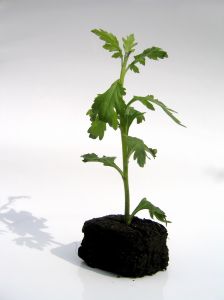Professor David Lindenmayer of the ARC Centre of Excellence for Environmental Decisions (CEED) and the Australian National University (ANU) says scientists are concerned a poorly-planned plantation boom could cause needless land clearing, add to invasive species and damage natural ecological processes.
"It's what we term 'bio-perversity', meaning that something which is done for the right environmental reasons but not thought through, can end up having unintended adverse consequences — especially in Australia's fragile landscapes," he said.
"Like it or not, the carbon economy has come to town — and putting a price on carbon is going to drive big changes in how we manage our landscapes, which will probably accelerate as climate impacts grow.
"We want to make sure these changes benefit Australia's native species and environment — not add to the destructive pressures on them.
"We're not opposed to plantations — especially if they reduce logging pressure on native forests. But they need to be planned properly and put in the right places."
In a recent article published in the journal Conservation Letters, Prof. Lindenmayer and colleagues point out there is rising global interest in locking up carbon by establishing tree plantations: large carbon emitters worldwide are now prepared to pay substantial sums to offset their emissions — and this is driving major change in farming and native landscapes and how they are managed.
"We're at the start of what could well turn out to be a 'carbon rush' — a global rush to bury carbon as climate change accelerates and incentives to sequester carbon are increased by worried governments.
"We'd like to make sure that when this rush happens in Australia, it also serves our national conservation goals."
Prof. Lindenmayer says plantation forestry can have negative environmental consequences where it causes loss of native habitat, invasions of new species and changes to soil, water and other landscape processes which are fundamental to supporting native biodiversity.
"If these threats are not explicitly dealt with when we roll out new carbon mitigation strategies, the risk is that such impacts will be felt on a far greater scale."
The researchers have proposed there should be a full ecological risk assessment as well as carbon accounting in every case where a carbon plantation is established.
Incentives to sequester carbon should be re-assessed: "One aim would be to create incentives that broaden plantation goals beyond carbon sequestration to include a range of desirable environmental outcomes," they say. Carbon plantations should also be monitored to ensure that they comply with conservation standards.
"If the rush to plant trees and establish big plantations for carbon sequestration results in a range of other environmental values being ignored, we expect big problems to follow," the researchers said.
A narrow focus on carbon storage could not only harm the wider environment but also fail to curb the human contribution to climate change.




